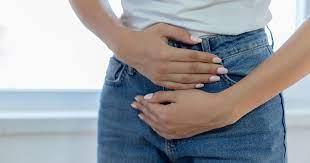What could responsible for Pelvic pain
What could responsible for Pelvic pain

photo credit: Goggle
What could be responsible for Pelvic pain?
Most women have a t a point experience mild to severe pelvic pain. Though minor menstrual cramps can be a responsible, once the pain becomes severe and lasting for months, it is recommended that you see a gynecologist.
To understand how important this issue is, a gynecologist says that “pelvic pain is a big puzzle that can be caused by numerous factors. That’s why it is crucial for your doctor to listen to you, hear out your symptoms, take you seriously, and if they don’t, see another expert for second opinion.” Once the source of the pelvic is confirmed, there are numerous approaches to help with the pain.
According to experts, here are few things responsible for your pelvic pain.
Gyno related
Endometriosis is said to be one of the major of pelvic pain, this condition occur as a result of tissue inside your uterus growing outside. Endometriosis affects about 10 percent of women within the reproductive age, and the pain can start from mild to a chronic one. Although it’s usually related to menstruation, but it can happen at any time; a common symptoms of this condition is feeling pain during sex and during a bowel movement.
On the other hand, if your pelvic pain comes with extremely heavy periods, with you feeling constipated often or peeing frequently; that may be indicative of something else. If this sounds familiar, ensure that you see your doctor.
Gut related
While it may be difficult to know whether pelvic pain is gastrointestinal or gyno- related, because parts of your colon lie close to your pelvic area. According to a gastroenterologist, if your pain comes with bloating, gas, diarrhea or constipation, and sometimes mucus in your feces that may be irritable bowel syndrome (IBS). The condition is twice common in women and about 15 percent of people struggle with it.
If you feel any of these symptoms, ensure that you see a gastroenterologist for complete evaluation. The first line of treatment may include cutting back on possible trigger foods such as dairy or gluten.
Urine related
When a pelvic pain comes with the urge to pee, expert suggests that it may be painful bladder syndrome- also known as interstitial cystitis. The cause of the condition is still unknown, and it affects about 3-7 percent of women. Despite the uncertainty, a common theory is that there is a breach in the protective lining of your bladder, allowing urine to irritate the bladder wall. Common symptoms from patients are feeling of discomfort and pressure in their pelvic area and always rushing to the bathroom with minute urine coming out.
Once UTI has been ruled out as a possible factor, and other conditions such as kidney stones or bladder cancer, your health provider may recommend ruling out foods and drinks such as citrus that can irritate your bladder.
Muscle related
If the pelvic pain comes with constant feeling to pee and poo- yet pushing hard to get it out- or feeling like you need to still get it out; that can be a pelvic floor dysfunction. According to a study, about 1 in 4 women have this issue, and risk factors include past vaginal childbirth, pelvic surgery, overweight or obese, and genetic predisposition.
In conclusion, if you have pelvic pain occurring for more than 6 month, ensure that you speak with an expert.
Source: www.health.com website.
